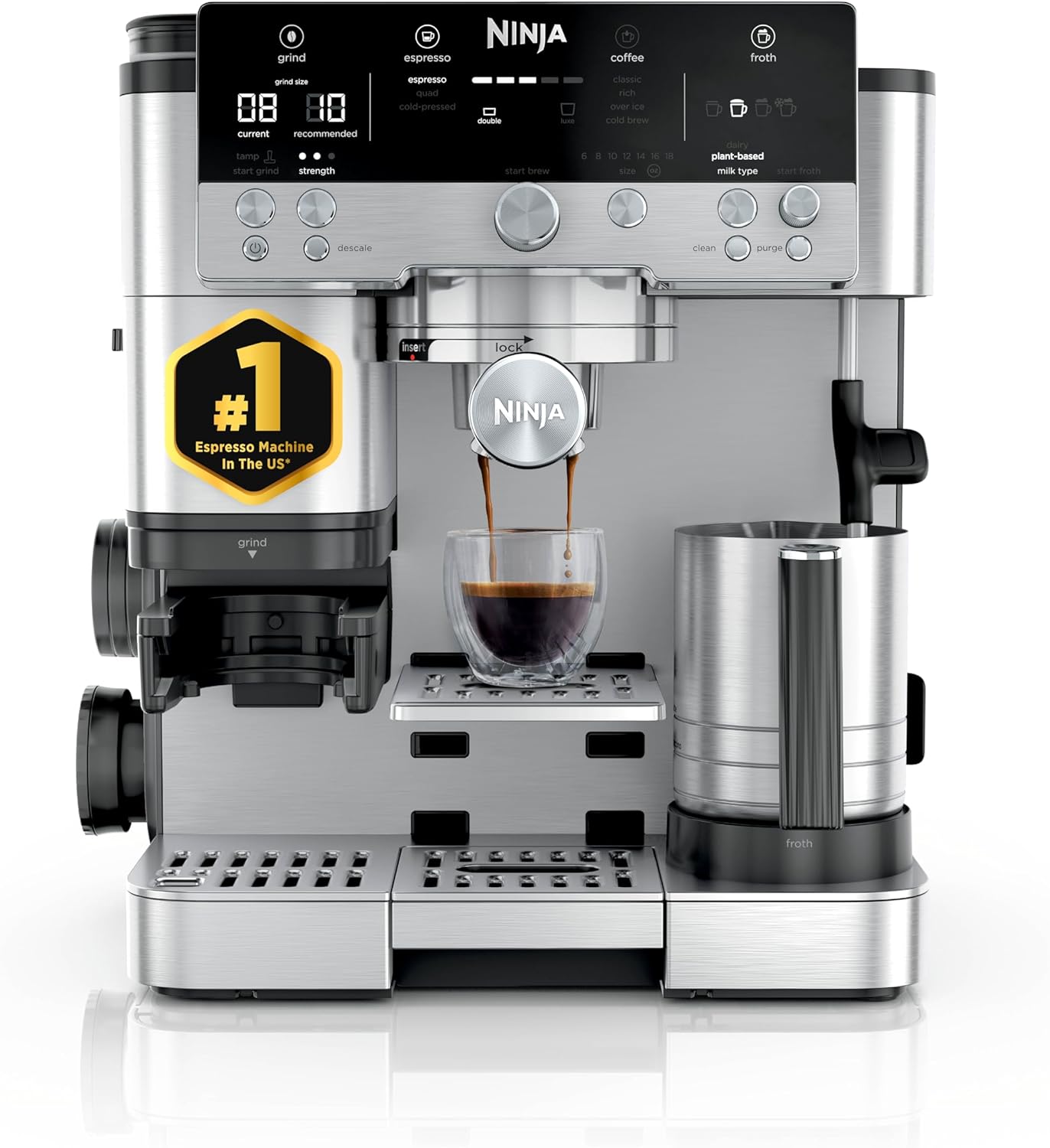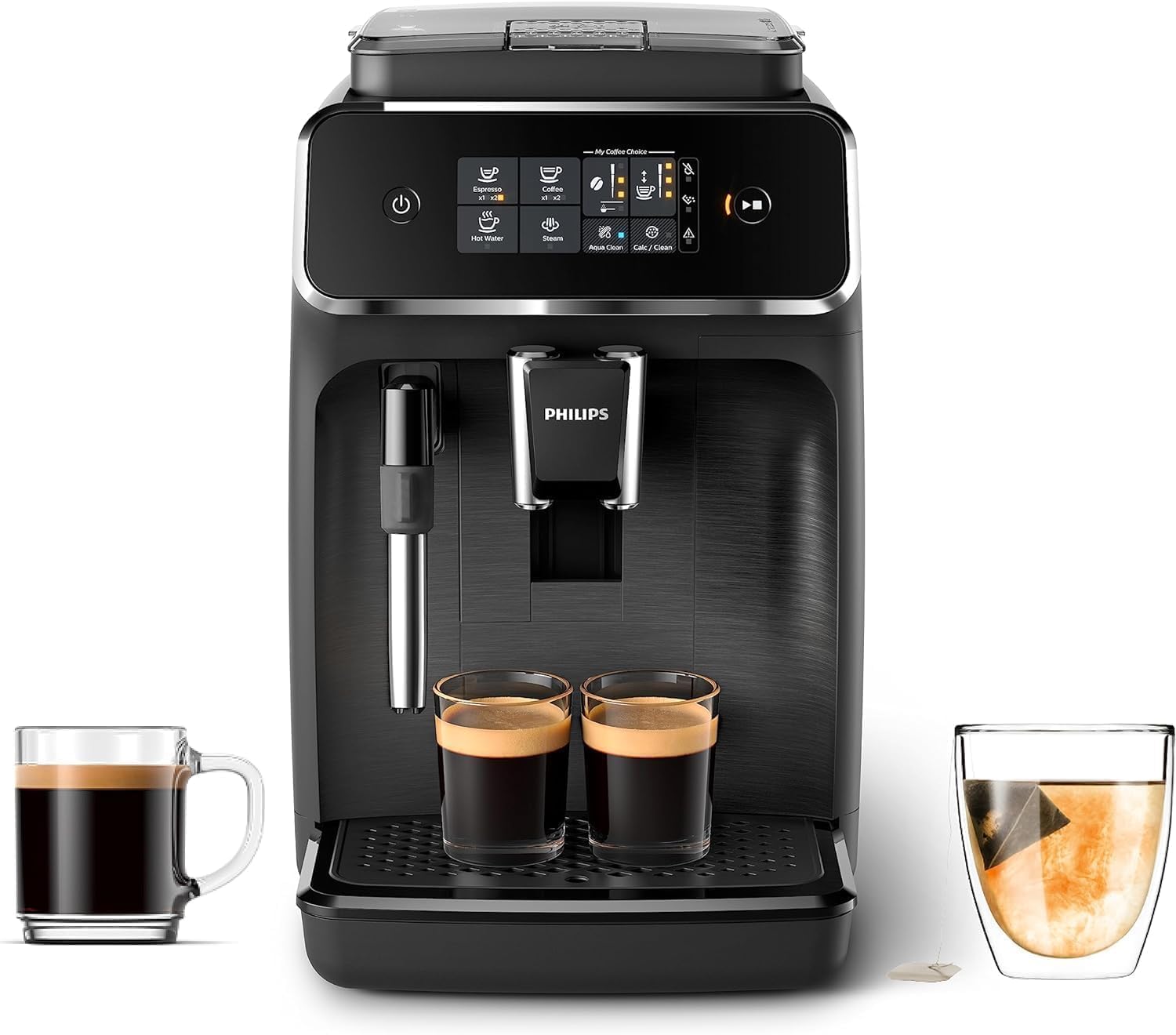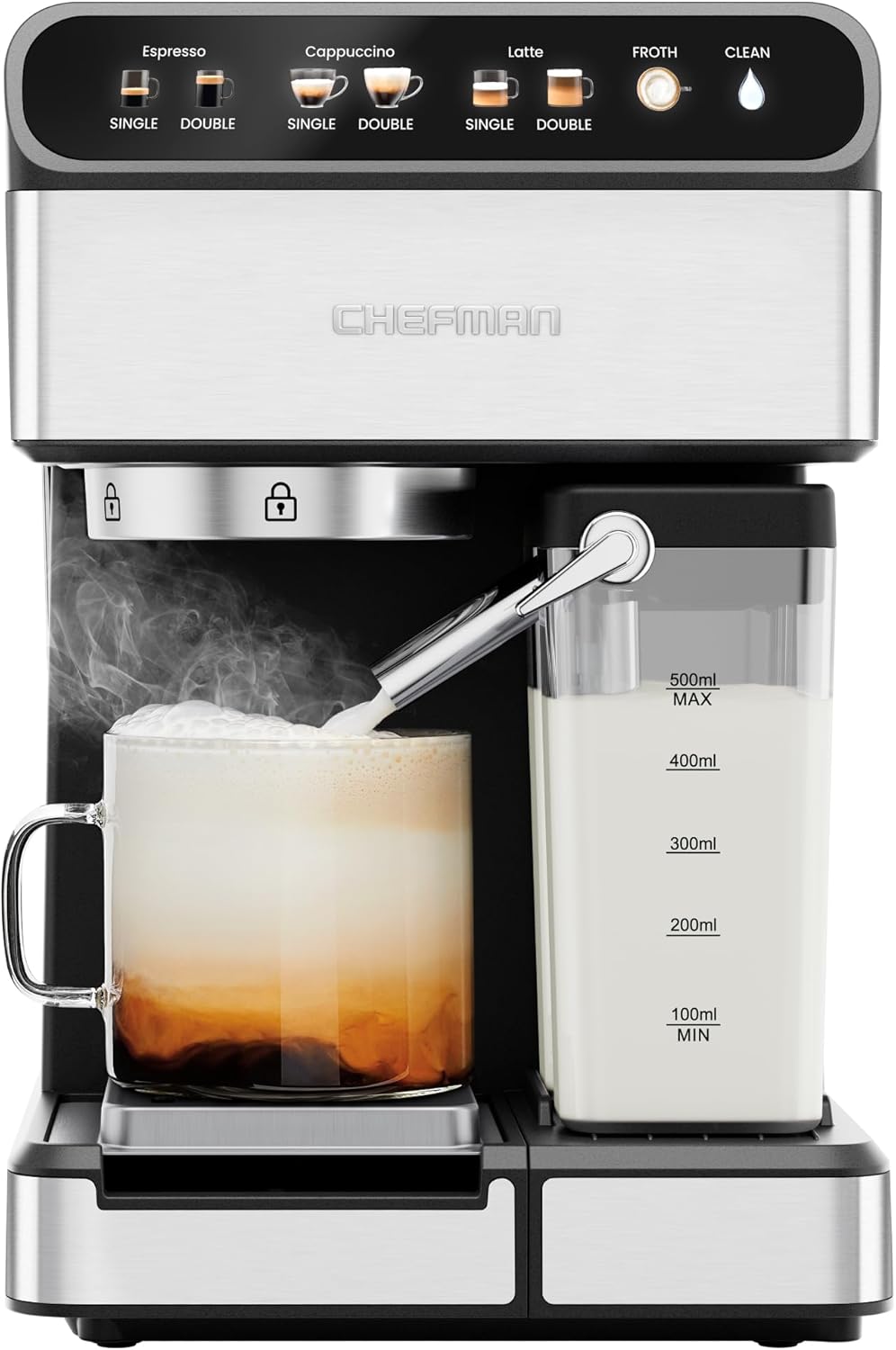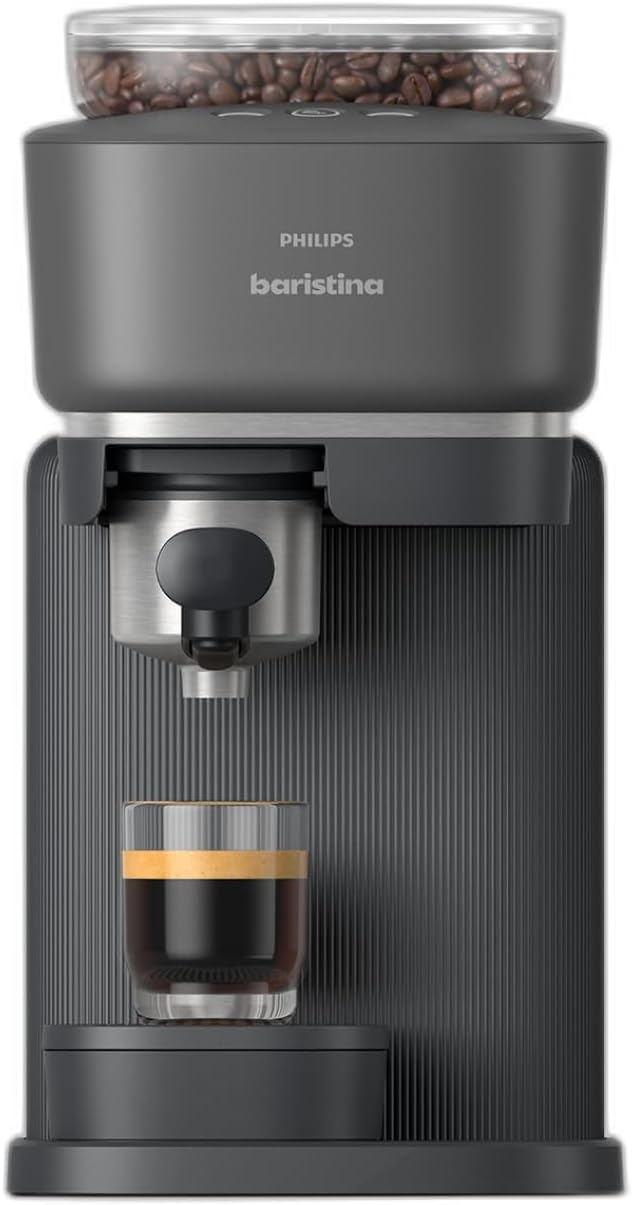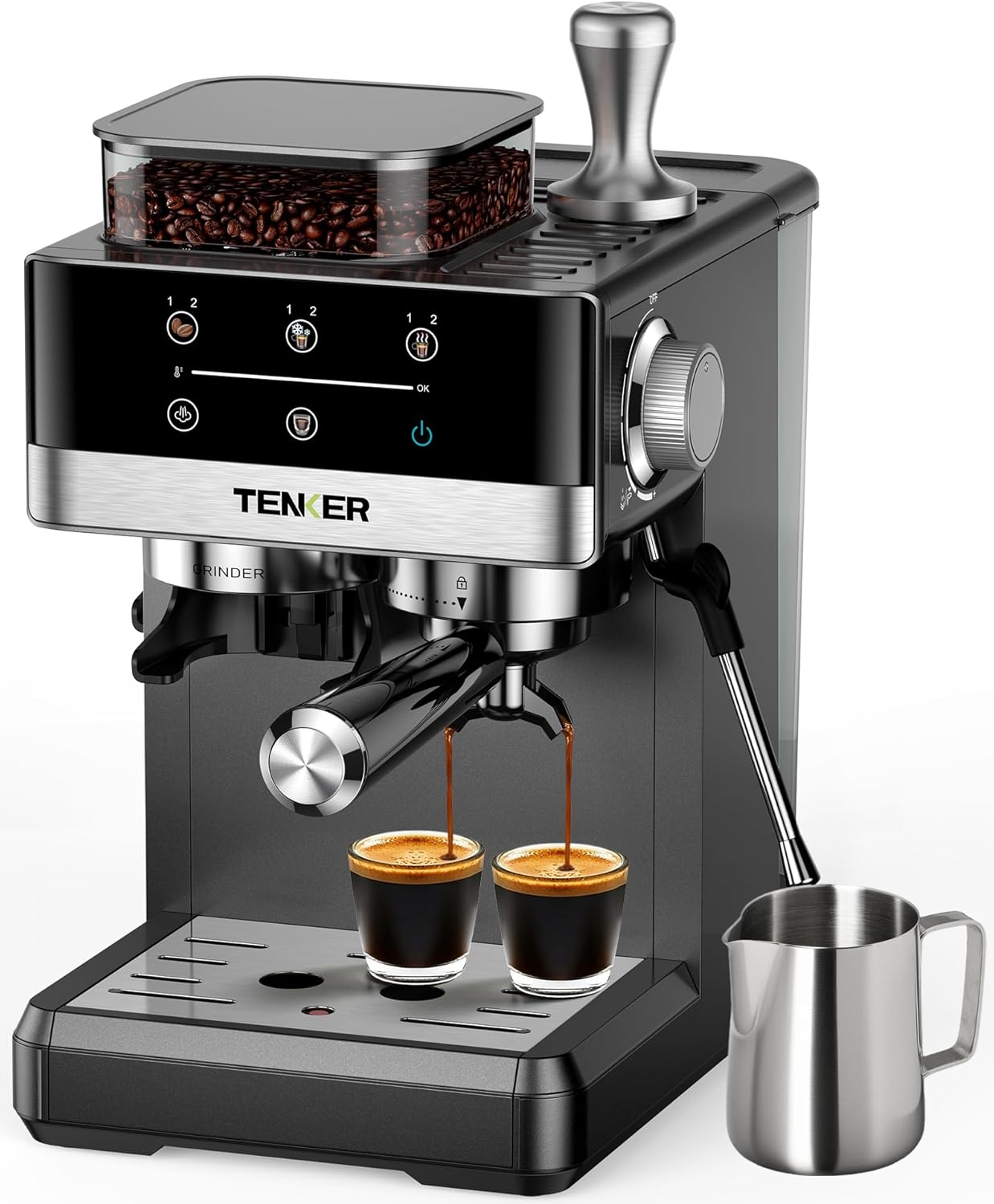Here’s an overview of the Best Automatic Espresso that we’ll explore today:
Choosing an automatic espresso machine is about balancing convenience, versatility, and long-term value. For enthusiasts and households alike, these machines promise café-style drinks with at-home consistency, often incorporating integrated grinders, adjustable dosing, and automated milk frothing. The category spans budget-friendly all-in-one units to premium models with guided dosing, weight-based measurement, and advanced steam systems. In this comparison, I evaluate five models across a price spectrum from $149.99 to $599.00, focusing on build quality, grind freshness, extraction control, milk-texture performance, and daily maintenance implications. My testing methodology combines hands-on brewing across multiple drink types (espresso, cappuccino, latte, and cold brew variants where applicable), time-to-brew measurements, ease-of-use assessments, and long-run maintenance considerations such as descaling and cleaning accessibility.
1. Ninja Luxe Café 3-in-1 Espresso
- Brand: Ninja
- Manufacturer: Ninja
Overview: The Ninja ES601 Luxe Cafe blends espresso, drip coffee, and cold brew into a single stainless steel footprint with a built-in conical burr grinder and a weight-based dosing system. Its standout features include Barista Assist Technology, an integrated grinder with 25 grind settings, and a built-in storage compartment for accessories. The assisted tamper and built-in storage contribute to a cohesive, space-saving workflow, while the multiple drink modes (double/quad shot espresso, several drip sizes, and cold brew options) aim to cover most home-use scenarios. At $599, it sits at the premium end of the tested range and is marketed as a comprehensive, all-in-one solution with café-style automation.
Performance-wise, the weight-based dosing and grind-adjustment tech are designed to remove guesswork and standardize shots across beans and roast levels. The Dual Froth System promises hot or cold microfoam with preset programs that reduce manual frothing iterations. However, as a multi-function machine, some users may experience longer heat-up times between modes and occasional routine-switching nuances when moving from espresso to milk-based drinks. The built-in tamper, storage, and included cleaning/dispenser accessories add tangible value, particularly for first-time buyers who prefer an organized workspace. Overall, the Ninja ES601 excels as a feature-rich, all-in-one system for households that want variety and automation without multiple appliances.
Pros
- Integrated grinder with 25 grind settings for bean-to-shot freshness
- Weight-based dosing improves consistency across drinks
- Barista Assist Technology provides guided adjustments for temperature and pressure
- Built-in accessory storage and assisted tamper
- Automatic frothing with multiple milk-texture presets
Cons
- High price point may be overkill for pure espresso purists
- Footprint is larger than typical compact machines
- Some users report learning curve with multi-function modes
2. Philips 2200 Series Fully Automatic Espresso Machine
- Brand: PHILIPS
- Manufacturer: PHILIPS
Overview: Philips’ 2200 Series EP2220/14 focuses on accessible automation with a 2-beverage capability (espresso and coffee), a 100% ceramic grinder for bean freshness, and an intuitive touch display. The Aroma Seal helps preserve bean freshness, and the removable brew group makes maintenance approachable. At $539.99, it targets consumers who want a solidly automatic experience with reliable bean preservation and straightforward operation, rather than a dedicated latte system with advanced frothing controls.
In use, the machine emphasizes simplicity and reliability: a removable brew group facilitates quick cleaning, and a descaling alert helps maintain performance over time. The two-coffee option covers espresso and milk-based drinks via a separate milk system, but the frothing experience is not as advanced as some premium rivals, with the built-in frothing system delivering good results for everyday cappuccinos. For households prioritizing ease of use, consistent extraction, and strong bean storage, this Philips model offers strong overall value with dependable performance.
Pros
- Ceramic burr grinder preserves flavor with low heat transfer
- Removable brew group simplifies cleaning and maintenance
- Aroma Seal helps keep beans fresh longer
- Intuitive touch display for quick beverage selection
Cons
- Milk frother performance may be less versatile than higher-end rivals
- Limited drink customization compared to multi-function machines
- Older model release year may affect long-term software updates
3. Chefman CaféMaster Pro Espresso Machine
- Brand: Chefman
- Manufacturer: Chefman
Overview: The Chefman CaféMaster Pro is a compact, semi-automatic espresso machine designed for budget-minded buyers who still want built-in frothing. It features a 15-bar pump, a 1.8-liter water reservoir, and a one-touch approach to brewing and frothing, enabling espresso, cappuccino, and latte drinks. Priced at $149.99, it positions itself as an entry-level option with a straightforward workflow and a smaller footprint than many all-in-one competitors.
Performance-wise, this model emphasizes convenience and basic automation. The built-in steam wand enables milk texturing, and the machine cups out drinks with a simple workflow: fill, tamp with supplied accessories, brew, and froth. However, the less sophisticated control surface and semi-automatic operation mean that achieving consistent microfoam and shot consistency can require more manual attention than higher-end units. For users who want a low-cost first espresso machine with milk frothing capabilities, the CaféMaster Pro delivers solid value, albeit with trade-offs in precision and durability at this price point.
Pros
- Very affordable entry point into espresso with built-in frother
- 15-bar pump provides good extraction potential
- Large 1.8 L water reservoir reduces refills
- Semi-automatic control with straightforward one-touch drink options
Cons
- Semi-automatic operation may require more manual dialing for consistency
- Build quality and durability may lag behind mid-range rivals
- Frothing wand can be challenging for precise microfoam without practice
4. Philips Baristina Espresso Machine – Real espresso
- Brand: PHILIPS
- Manufacturer: PHILIPS
Overview: Baristina BAR300/60 from Philips emphasizes a compact footprint with a built-in grinder and a 16-bar pump, marketed as a simple, fast way to go from bean to cup. The machine highlights its sustainability angle, using recycled plastics in construction and an energy-conscious design. At a price of $327.99, Baristina sits in the mid-range segment and aims to offer a balance of grinder-assisted espresso with a user-friendly interaction model.
In practice, Baristina provides a quick shot-to-cup experience: grind, tamp, and brew with a focus on speed (espresso in under a minute). The 16-bar pump is a solid baseline for robust extraction, and the built-in grinder helps preserve aroma. Yet, the machine’s compact form factor can limit the size of drinks or the milk-frothing capacity for larger servings. The emphasis on sustainability and a straightforward on-handle workflow makes it appealing for eco-conscious buyers who want simplicity without sacrificing espresso authenticity.
Pros
- 16-bar pump delivers solid espresso extraction
- Integrated grinder supports bean-to-cup freshness
- Compact footprint fits small kitchens
- Sustainability-focused design with recycled plastics
Cons
- Limited drink customization compared to premium multi-function models
- Milk frothing performance not as advanced as dedicated foaming systems
- Fewer accessories may limit long-term versatility
5. TENKER Espresso Machine with Grinder
- Brand: TENKER
- Manufacturer: TENKER
Overview: TENKER CM5520 combines a built-in grinder with a high-pressure pump and a powerful steam wand, delivering an all-in-one experience for latte, cappuccino, and other milk-based drinks. Priced at $199.98, it targets consumers who want a capable grinder-equipped machine without paying premium prices. The 61-ounce removable water tank and 20-bar pump with PID temperature control are notable electrical features designed to stabilize extraction and milk texturing.
Performance-wise, the machine emphasizes versatility and user feedback: the large water reservoir reduces refilling needs, and the PID-controlled temperature helps maintain consistent extraction. The steam wand and included milk pitcher support confident milk frothing, though achieving cafe-grade microfoam will still depend on operator technique. The built-in grinder with 30 grind settings and automatic single/double shot dosing minimizes guesswork, making this a compelling option for home baristas who want both grinding and brewing in one unit at a mid-range price.
Pros
- Integrated grinder with 30 grind settings
- 20-bar pump with PID temperature control for stable extraction
- Automatic single/double shot dosing reduces manual effort
- Large 61 oz water reservoir and included milk frothing pitcher
Cons
- Semi-automatic operation may require practice for consistency
- Heavier appliance that may take up more counter space
- Some users may desire more advanced multi-drink customization
Frequently Asked Questions
We’ve compiled answers to the most common questions about automatic espressos to help you make an informed decision.
Conclusion
Final thoughts: The best overall value for a broad feature set is the Ninja ES601 if you want maximum versatility and automation.
For the most straightforward, low-maintenance experience, Philips EP2220/14 provides dependable performance with a clean, simple interface. If your priority is budget-friendly espresso with integrated milk frothing, Chefman CaféMaster Pro delivers solid basics, while TENKER CM5520 offers a compelling mid-range blend of grind-on-demand, high pressure, and user-friendly dosing.
Philips Baristina BAR300/60 emphasizes sustainability without sacrificing espresso quality in a compact form. Assess your beverage preferences, counter space, and tolerance for learning curves to choose the model that aligns with your ideal home barista setup..

